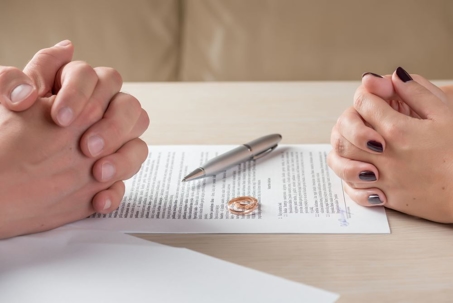Saying "COVID-19 has affected the legal system" would be something of an understatement. Like most industries, the coronavirus pandemic has negatively impacted the court system in a variety of ways. The courts are extremely backlogged from the shut-down. Now, from social distancing to remote hearings, navigating cases in the courtroom is uniquely challenging.
As a result, out-of-court substitutes for traditional in-court procedures are picking up steam. Collaborative divorce is one such alternative, offering couples a faster, safer, and often more cost-effective way to dissolve a marriage. Today, we're giving you the run-down on what collaborative divorce is and why you might want to consider it for your divorce in 2020.
What Is Collaborative Divorce?
Collaborative divorce is an alternative to traditional litigation. In a collaborative divorce, both parties hire a collaboratively-trained attorney. The attorneys will bring in other neutral professionals to help them navigate the case. All parties work together as a team, through a series of meetings, to negotiate a mutually beneficial resolution to the divorce.
Unless a factor like domestic abuse complicates the divorce, courts generally assume that divorcees know what's best for themselves and each other. This assumption is why courts tend to favor compromise between parties and often make neutral decisions (like defaulting to joint-custody in child custody battles) in divorce cases.
Collaborative divorce allow parties to dissolve their marriage in a mutually beneficial manner, taking into consideration their unique interests, without going through the court.
Courts only structure divorce decrees when the parties involved cannot reach an agreement on the terms of the divorce. However, in most divorces, a court-ordered divorce decree is considered the worst-case scenario. As a result, court-ordered decrees often leave both parties bitter and frustrated.
The COVID-19 pandemic has only made collaborative divorce more attractive as an alternative way to resolve the dissolution of a marriage. Let's explore some reasons you should consider a collaborative divorce.
Collaborative divorce is great if...
You Want to Circumvent COVID-19 and Courtrooms
Collaborative divorces occur outside of the courtroom. As a result, you won't have to deal with COVID-related case backlogs and wait to finalize your divorce.
Additionally, many people—particularly those at risk of suffering more harshly from the coronavirus—have safety concerns about going into public spaces like courtrooms. A collaborative divorce enables you to avoid attending events like court hearings that might place you in a vulnerable position.
You Don't Think Mediation Is Right for You but Still Want a Compromise with Your Spouse
Many courts require that parties go through mediation before pursuing a divorce in court, but mediation isn't right for everyone.
Mediators cannot give legal advice; therefore each party has to hire his or her own mediation attorney to receive counsel. Additionally, mediations often occur over a short time frame, usually taking place in one day or even a half-day.
Collaborative divorce provides a more legally secure alternative to mediation. Since both parties have a specially trained collaborative attorney to act as their legal advocate and protect their rights, it's difficult for someone to manipulate or derail the collaborative divorce process.
Additionally, collaborative divorces often take much longer than mediations, typically occurring over multiple sessions, each session being days or weeks apart. If you need time to think about divorce-related processes like property division (and you probably do), collaborative divorce can keep you from making hasty decisions that you'll regret in the long-term.
You Want a Functional Relationship with Your Ex Post-Divorce
If you and your ex share children and plan on co-parenting, or even just share the same social or professional circles, you probably want to remain on good terms with them post-divorce. In the collaborative divorce process, parties work toward healthy post-divorce co-parenting.
No two divorces look the same. In any divorce, having an attorney you can trust at your side is vital.
To schedule a consultation with an experienced Southlake divorce attorney you can rely on to protect your rights, contact us online or via phone at (817) 477-6756.

